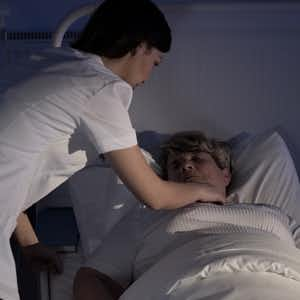
Working a rotating night shift over an extended period of time seems to be bad for the heart. That is the conclusion of a study of 189,158 women participating in the Nurses’ Health Studies.
The Nurses Health Study Volunteers:
Harvard epidemiologists recruited a large number of nurses starting in 1976 with the original Nurses’ Health Study and continuing with a younger cohort (the Nurses’ Health Study 2). They are now recruiting a third cohort of younger registered nurses (the Nurses’ Health Study 3). These women are knowledgeable about health and reliable in answering questionnaires about their activities, work, diet and other factors every few years.
More Night Shift Work Linked to a Higher Risk of Heart Problems:
The follow-up period for these studies of initially healthy nurses is 24 years. What the Harvard epidemiologists found is that rotating night shift work was associated with a small but statistically significant increase in the risk for cardiovascular complications.
Women who had spent at least ten years doing rotating night shifts were about 18 percent more likely than those who had never worked night shifts to develop symptoms of heart disease. Among the older women in the original Nurses’ Health Study, there were 597 strokes, heart attacks or other cardiovascular complications per 100,000 woman-years in those who had worked rotating night shifts for 10 years or more. By comparison, among those who had worked fewer than five years of rotating night shifts, the rate was 435 per 100,000 person-years.
The younger women of the Nurses’ Health Study 2 are at lower risk overall because heart problems tend to increase with age. Those who worked less than five years on rotating night shifts had a rate of 131 events per 100,000 person-years, while those who had worked a rotating night shift for at least 10 years had a rate of 178 for 100,000 woman-years.
Quitting shift work helped reduce the risk. In particular, among the volunteers in the Nurses’ Health Study 2, the longer they went without working the night shift, the lower their risk of developing cardiovascular complications.
If you follow the link to the article, you will also find video and audio author interviews.

